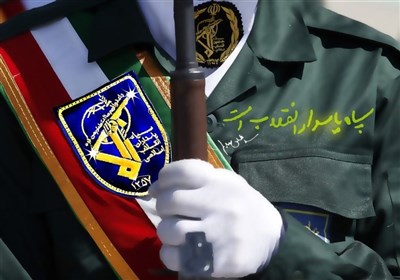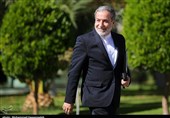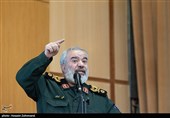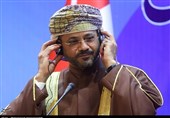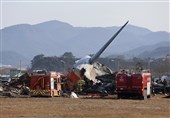Iran’s Plan on Additional Protocol Not Tantamount to JCPOA Exit: Deputy FM
TEHRAN (Tasnim) – An Iranian deputy foreign minister emphasized that Tehran’s decision to suspend the voluntary implementation of the Additional Protocol does not translate into withdrawal from the Joint Comprehensive Plan of Action (JCPOA), noting that Iran’s measures are reversible.
Speaking at a televised interview on Saturday night, Abbas Araqchi said Iran’s plan to halt the voluntary implementation of the Additional Protocol of the Nuclear Non-Proliferation Treaty on February 23 is by no means tantamount to withdrawal from the 2015 nuclear deal.
Iran’s actions are reversible, he noted, saying Tehran will resume implementing the Additional Protocol and honoring the JCPOA commitments as soon as its demands are met.
He also noted that Iran is considering the European Union’s offer to host an informal meeting between Tehran and other parties to the 2015 nuclear deal, with Washington also attending as a guest.
He said EU Foreign Policy Chief Josep Borrell has expressed his readiness to invite the current parties to the JCPOA, namely the P4+1 and Iran, to attend an unofficial meeting to develop the future roadmap of the deal.
The US, which left the multilateral deal in 2018, will also be invited to attend the informal meeting as a guest, Araqchi said, adding, “Now we are considering Borrell’s offer, and are engaged in consultations with our other friends and partners like China and Russia.”
However, Tehran believes the US return to the JCPOA and the implementation of its commitments including the removal of sanctions do not need any negotiation, he stressed.
Araqchi also said the ongoing visit of Rafael Grossi, the director-general of the International Atomic Energy Agency (IAEA), to Tehran will not impact Iran’s decision to stop implementing the Additional Protocol as per a law passed by the Iranian parliament.
“Grossi’s trip to Tehran has nothing to do with Iran’s decision,” Araqchi said, adding that the visit is aimed at creating a “new order” in Iran-IAEA relations, Press TV reported.
“Once the February 23 deadline arrives and Iran stops its voluntary implementation of the Additional Protocol, a new situation will be created in our ties with the IAEA,” he noted.
He said the IAEA director-general was the one who expressed interest in visiting Iran in order to establish a new form of cooperation between the two sides so as to minimize possible damages to Iran-IAEA collaborations.
Grossi announced on Tuesday that he was ready to visit Iran after the country informed the UN body of its decision to end voluntary implementation of the Additional Protocol on February 23 in line with the new law passed by the Parliament.
In December 2020, the Iranian Parliament ratified a bill requiring the government to halt voluntary implementation of the NPT if the European signatories to the 2015 nuclear deal keep failing to honor their commitments.


